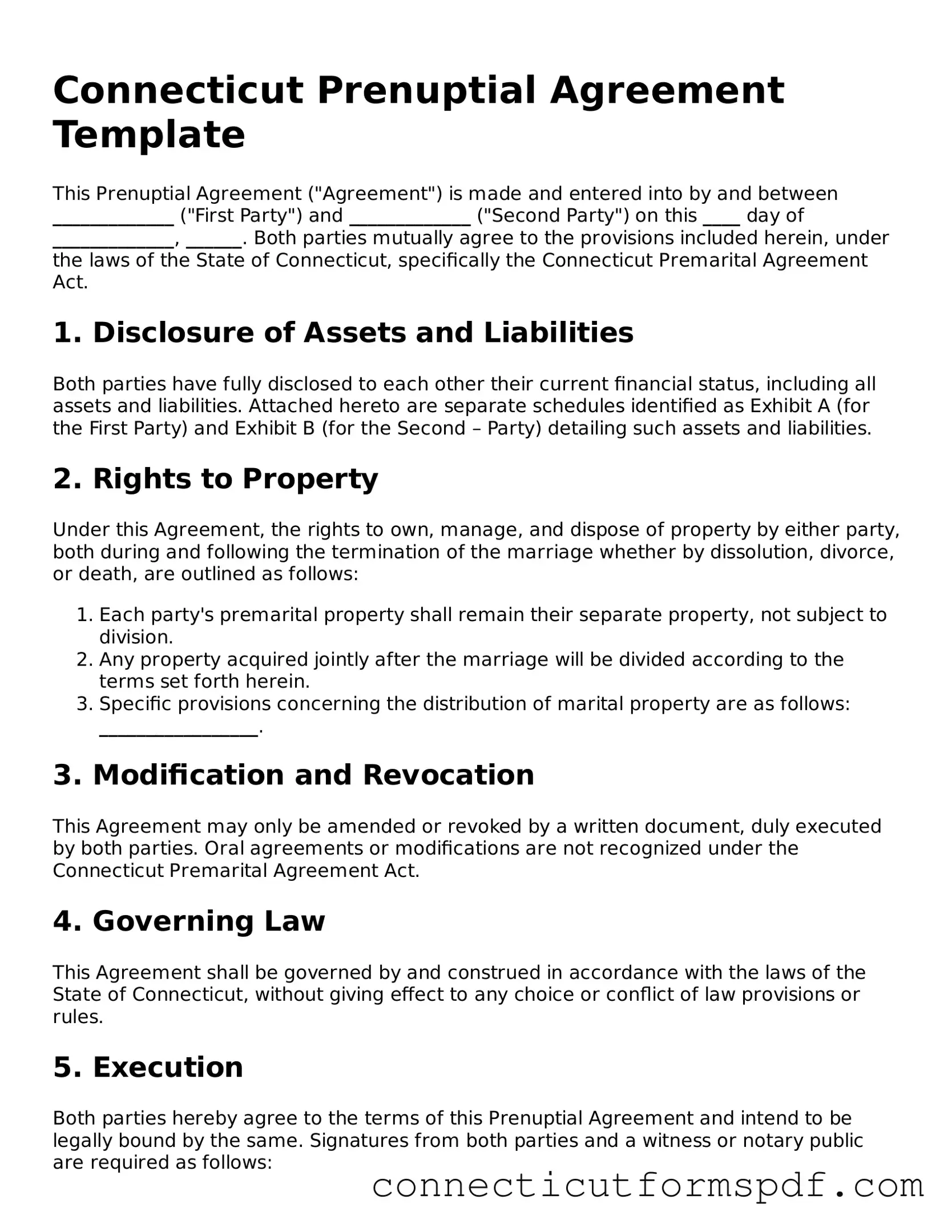Connecticut Prenuptial Agreement Template
This Prenuptial Agreement ("Agreement") is made and entered into by and between _____________ ("First Party") and _____________ ("Second Party") on this ____ day of _____________, ______. Both parties mutually agree to the provisions included herein, under the laws of the State of Connecticut, specifically the Connecticut Premarital Agreement Act.
1. Disclosure of Assets and Liabilities
Both parties have fully disclosed to each other their current financial status, including all assets and liabilities. Attached hereto are separate schedules identified as Exhibit A (for the First Party) and Exhibit B (for the Second – Party) detailing such assets and liabilities.
2. Rights to Property
Under this Agreement, the rights to own, manage, and dispose of property by either party, both during and following the termination of the marriage whether by dissolution, divorce, or death, are outlined as follows:
- Each party's premarital property shall remain their separate property, not subject to division.
- Any property acquired jointly after the marriage will be divided according to the terms set forth herein.
- Specific provisions concerning the distribution of marital property are as follows: _________________.
3. Modification and Revocation
This Agreement may only be amended or revoked by a written document, duly executed by both parties. Oral agreements or modifications are not recognized under the Connecticut Premarital Agreement Act.
4. Governing Law
This Agreement shall be governed by and construed in accordance with the laws of the State of Connecticut, without giving effect to any choice or conflict of law provisions or rules.
5. Execution
Both parties hereby agree to the terms of this Prenuptial Agreement and intend to be legally bound by the same. Signatures from both parties and a witness or notary public are required as follows:
- First Party Signature: _________________
- Second Party Signature: _________________
- Witness/Notary Public Signature: _________________
6. Entire Agreement
This Agreement, including any exhibits and attachments, constitutes the entire agreement between the parties pertaining to its subject matter and supersedes all prior and contemporaneous agreements, representations, and understandings of the parties. No supplement, modification, or amendment of this Agreement shall be binding unless executed in writing by both parties.
7. Severability
If any part of this Agreement is deemed unenforceable or invalid by a court of competent jurisdiction, the remaining parts shall be unaffected and continue to be in full force and effect.
8. Acknowledgment
Each party acknowledges that he or she has read this Agreement, understands it, and agrees to be bound by its terms and conditions. Furthermore, both parties affirm that they have had the opportunity to consult with legal counsel of their choice before signing this Agreement.

